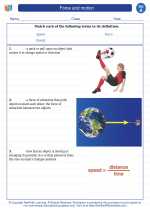Reflect: Science Study Guide
What is Reflection?
Reflection is the process of light, sound, or heat being thrown back after striking a surface. In science, reflection refers to the bouncing back of waves (such as light and sound) when they hit a surface.
Types of Reflection
There are two main types of reflection:
- Regular Reflection: Occurs when light or sound waves hit a smooth surface and bounce off at the same angle they hit the surface.
- Diffuse Reflection: Occurs when light or sound waves hit a rough surface and bounce off in different directions.
How Does Reflection Work?
When light or sound waves hit a surface, they can be reflected. The angle at which the waves hit the surface is equal to the angle at which they bounce off the surface. This is known as the law of reflection.
Examples of Reflection
Reflection is all around us! Some common examples of reflection include:
- Mirrors reflecting light
- Sound reflecting off walls
- Seeing your reflection in a pond or lake
Why is Reflection Important?
Reflection is important in many aspects of our daily lives. It allows us to see objects, hear sounds, and even stay cool on a hot day (by reflecting heat away).
Key Terms
Make sure you understand the following key terms related to reflection:
- Reflection
- The process of waves bouncing back after hitting a surface.
- Regular Reflection
- Reflection off a smooth surface at the same angle as the incident wave.
- Diffuse Reflection
- Reflection off a rough surface in multiple directions.
- Law of Reflection
- The angle of incidence is equal to the angle of reflection.
Review Questions
- What is reflection in science?
- What are the two types of reflection?
- Explain the law of reflection.
- Give an example of regular reflection.
- Why is reflection important in our daily lives?
◂Science Worksheets and Study Guides First Grade. Force and motion
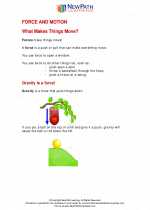
 Worksheet/Answer key
Worksheet/Answer key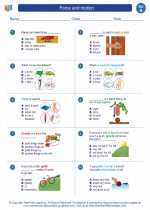
 Worksheet/Answer key
Worksheet/Answer key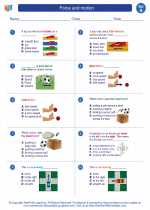
 Worksheet/Answer key
Worksheet/Answer key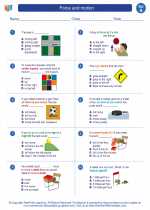
 Vocabulary/Answer key
Vocabulary/Answer key